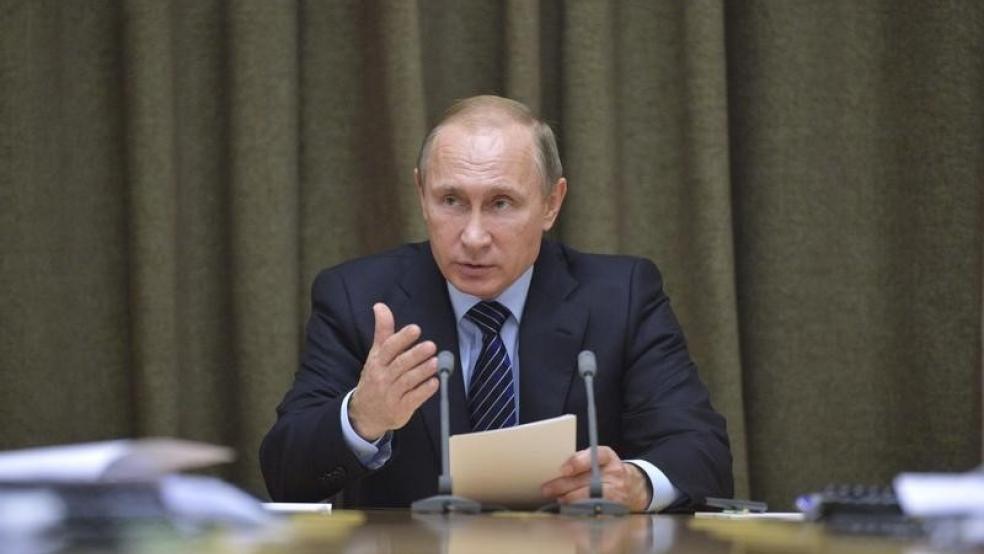Western governments presented a united front in imposing economic sanctions on Russia in the wake of Vladimir Putin’s decision first to invade part of Ukraine in 2014 and later to continue supporting separatist rebels in other parts of the war-torn country. And by all accounts, the sanctions have done considerable damage to the Russian economy.
They have also, arguably, done military damage. In reaction to Russia’s adventurism in Ukraine, French President Francois Hollande cancelled the planned sale of two Mistral-class helicopter carrier warships to the Kremlin
Related: Here’s Why Oil Prices Are Holding Steady, Despite the ISIS Attacks
But the mutual resolve of the West was never without cracks. The effort was led, in large part, by the United States, and the U.S., relative to many European countries, had very little to lose in cutting off lanes of commerce with Moscow. U.S. trade with Russia makes up a trivial percentage of the country’s GDP.
That was less true of many European nations, which went along with the sanctions regime partly out of anger and concern over Russian aggression but also partly out of fear of flouting the U.S. on an issue the Obama administration had plainly made a major priority.
However, in the aftermath of the terrorist attacks in Paris last week, which left more than 130 French citizens dead and hundreds more wounded, the relationship between Russia and the West has become more complicated.
Putin committed a substantial military presence to Syria late last summer – ostensibly to combat ISIS, though most of its efforts have actually been focused on bombing rebel groups challenging Syrian dictator Bashar al-Assad, one of Russia’s few allies in the region.
Related: Jeb Bush – We Need U.S. Ground Troops to Fight ISIS
This week, however, Russia claimed that a passenger jet that disintegrated over Egypt last month, killing hundreds of mostly Russian passengers, had been bombed by terrorists who were most likely affiliated with ISIS.
The admission was accompanied by an announcement that Russia would dramatically step up its attacks on ISIS in Syria. The Kremlin said that it would increase the number of its attack aircraft in Syria by more than half and would begin sending long-range heavy bombers based in Russia to strike ISIS targets.
Further, Putin personally ordered Russian naval units in the Mediterranean, including the guided missile carrier Moskva, to await the arrival of an expected French battle group and to coordinate with it and treat it as an “ally.”
It’s going to become increasingly difficult for Western countries to continue applying economic sanctions to Vladimir Putin’s Russia as his military takes on an increasingly important role in the battle against ISIS. Putin’s country, hammered not just by economic sanctions but by the plunge in global oil prices, has dedicated a huge amount of spending to its military, but how long it can keep that up remains unclear.
Related: Lindsey Graham Wants to Declare War on ISIS. But Is Anybody Listening?
Nowhere is the ambivalence toward continued sanctions on Russia clearer than in France, which now shares the sad distinction with Russia of having its citizens directly targeted for massacre by ISIS. (To be sure, ISIS attacks against civilians have been widespread, indiscriminate, and have touched many countries. But the group has managed to inflict few high-casualty attacks on major world powers so far.)
French President Francois Holland will travel to Moscow next week after a trip to Washington. And while it’s unlikely that Putin’s government will make a public appeal for sanctions to be lifted, the issue is already being raised in the French political circles.
A number of former high-ranking French politicians, including former Prime Minister Francois Fillon, have called for France to ease its stance toward Russia.
It likely won’t be the last call for Western nations to relax the economic pressure on Russia in the interest of furthering the fight against ISIS.





